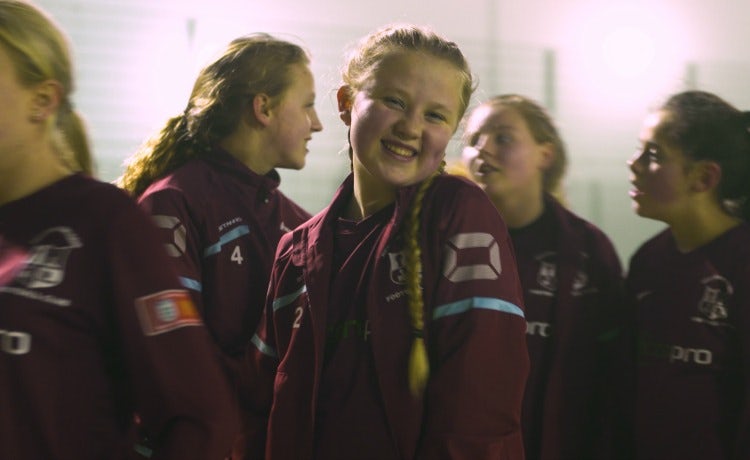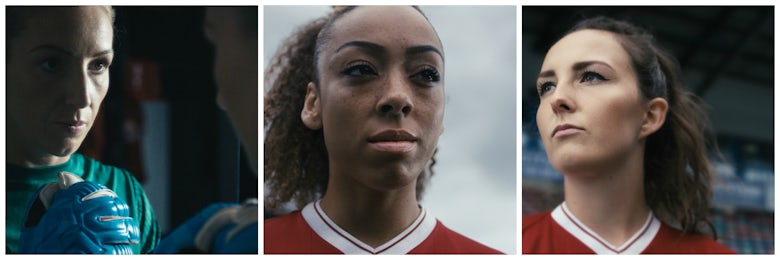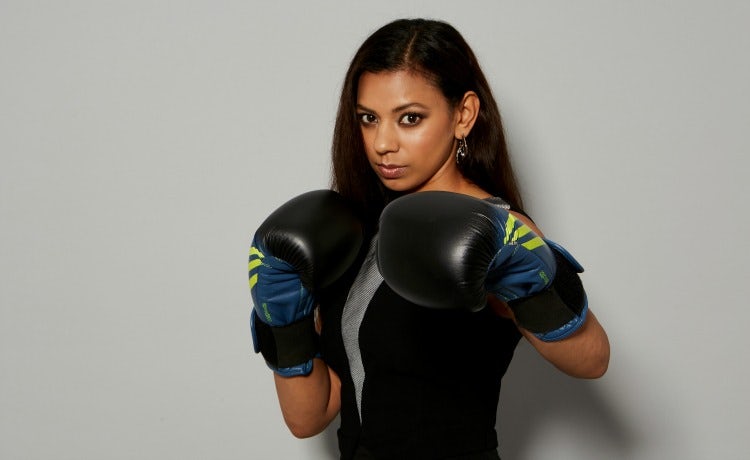Why brands are tapping into the power of alternative role models in women’s sport
Women’s sport offers a whole host of talented role models that could be a perfect fit for brands – if they just take the time to look.

Global sports audiences are increasingly moving away from the binary, traditional gender stereotypes that define male and female sports, so it’s time brands took notice too as the sponsorship opportunities are vast.
Team GB’s CEO Bill Sweeney says: “I’ve been involved in sport a long time and I can honestly say the experience around Rio 2016 was the first time I had been to a major global event like that that was truly genderless.”
“If you look at the two iconic athletes that came out of Rio 2016, there was [Jamaican sprinter] Usain Bolt and [American gymnast] Simone Biles, and I don’t believe now that a global audience necessarily differentiates between male and female [success].”
READ MORE: Why brands must rethink their approach to women’s sports sponsorship
Approximately 40% of Team GB athletes at the 2014 Winter Olympics in Sochi were female, while 45% of the team at Rio 2016 were women. Some 75% of Team GB’s medals in Sochi were won by female athletes and potentially over half of the medals at the Winter Games in Pyeongchang could be claimed by women.
Sweeney identifies the Team GB women’s hockey team as the highest profile British athletes to emerge from the 2016 Games. Captain Kate Richardson-Walsh has since teamed up with healthy eating brand Quorn, while teammate Sam Quek was ranked 14th in Marketing Week’s sister title Celebrity Intelligence’s list of top endorsers in 2017.
Nielsen statistics shows that support of Team GB skews strongly female. Some 54% of Team GB fans are female, while 58% of the organisation’s Facebook followers are women, mainly aged between 25 and 44.
Those that get involved [in women’s sport] now have the biggest opportunity to really make an impact and do things differently.
Stephen Rendu, Avon
Inspired by the new wave of female role models emerging from the Rio Olympics, beauty brand Avon decided to sign up as Liverpool Ladies FC’s shirt sponsor in April 2017, the first female-focused brand to become a standalone shirt sponsor of a professional women’s team. Until then, Women’s Super League (WSL) clubs had automatically shared the same sponsor as the men’s team.
READ MORE: How to pick the sporting brand ambassadors of the future
Stephen Rendu, Avon director of beauty and advertising, says getting involved in women’s football was a “no brainer” as the women’s game is expected to become the UK’s second largest participant sport in 2018 after men’s football, according to its research.
“However, the recognition and reputation of the sport isn’t representative of this growth and many young women lack the confidence to pursue their dreams, be it a hobby or professionally,” Rendu recognises.

This is why Avon teamed up with Liverpool Ladies FC on the ‘I Can Be’ campaign, designed to challenge gender stereotypes on and off the pitch. The campaign kicked off in October with the launch of the ‘Fiercely Feminine’ film, showing Liverpool Ladies FC players unashamedly embracing their femininity.
Rendu argues that it takes deals like Avon’s sponsorship of Liverpool Ladies FC to pave the way for others. “Unfortunately, women’s sport and women’s football is still relatively unchartered territory when it comes to brand sponsorship, however the consumer appetite is there,” he says.
“Avon’s ‘I Can Be’ research found that nearly half of the British public (45%) believe that women’s football deserves more airtime. With this demand we are going to see more brands, and hopefully female-focused brands, come into women’s football – and sport more generally. Those that get involved now have the biggest opportunity to really make an impact and do things differently.”
READ MORE: The dos and don’ts of sponsoring women’s sports
Choosing positive role models
Karen Millen is one brand trying to do something different. Last September, the fashion label worked with British kick boxer Ruqsana Begum on its #WomenWhoCan content project. Begum is the Muay Thai boxing champion and currently the only Muslim woman who is a national champion in her sport.

Head of global marketing and PR, Francesca Johnson, explains that #WomenWhoCan was driven by Karen Millen’s desire to drive conversation about surviving as a woman in the modern world and Begum was a perfect fit.
“Ruqsana as an individual is remarkable because of the adversity she overcame, not only as a Muslim woman who had to overcome resistance from her family to actually get started in the sport, but she also suffers from ME, so she’s a very high achieving sportswoman,” Johnson explains.
Begum was already a fan of Karen Millen, creating a genuine connection with the brand. However, Johnson believes it was important to use the tie-up to focus on her story rather than purely selling product.
“Even though Ruqsana was wearing the products, we were talking about her life and her experiences. If we’d have done a full-on photoshoot with Ruqsana, even though she looks fantastic, would it have been as powerful? Instead, we focused on what she had to say rather than it being about fashion and that’s an important distinction,” she adds.







